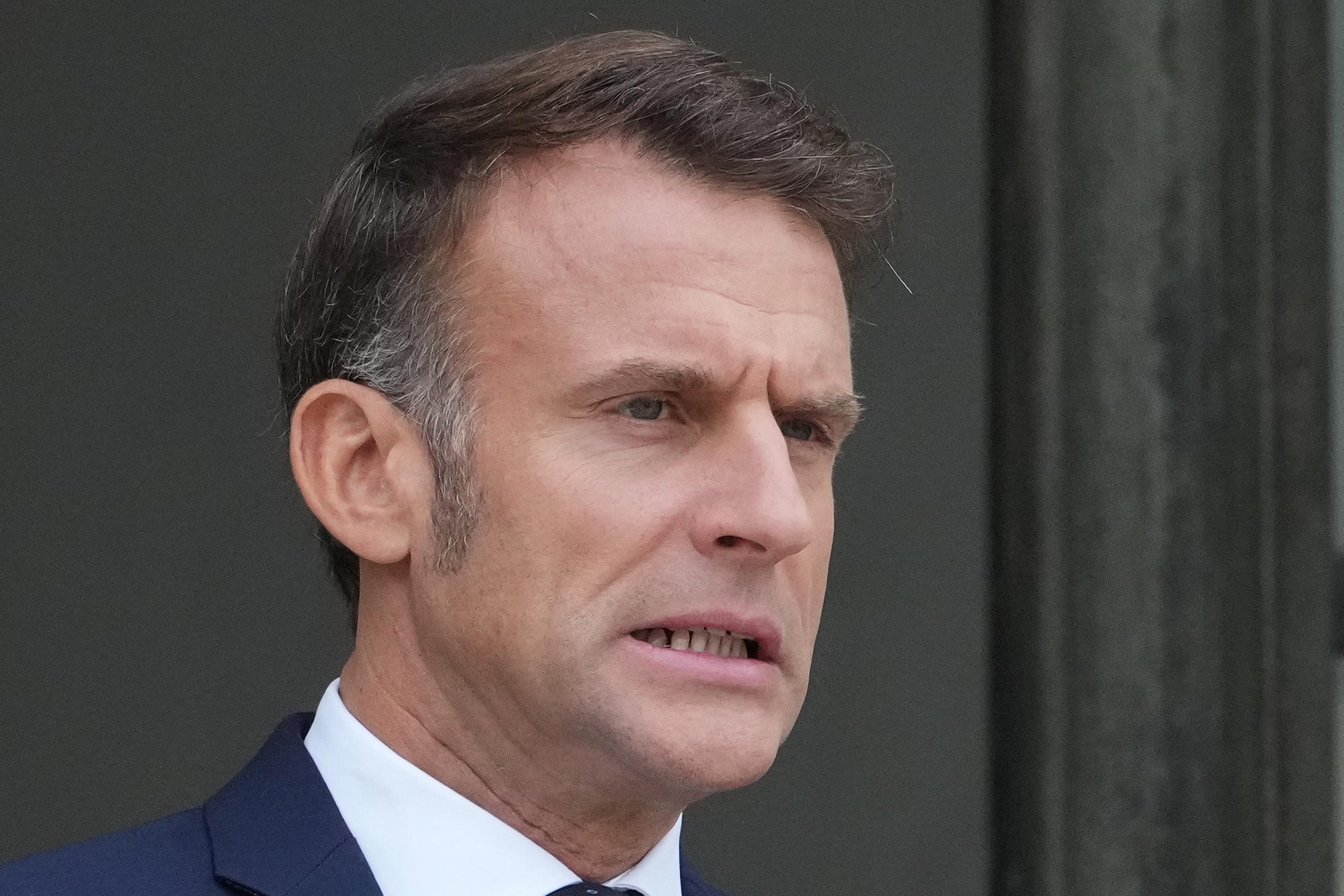French President Emmanuel Macron seeks to maintain a leading role in the peace negotiations in the Middle East. Following the success at the United Nations General Assembly, where he garnered broad support for the recognition of the State of Palestine, this Thursday he has organized a high-level interministerial meeting inscribed "in the continuity of French diplomatic efforts to end the war in Gaza and reopen a political perspective," as reported on Wednesday in a briefing by Quentin Jeantet, advisor for North Africa and the Middle East.
This meeting, attended by José Manuel Albares as Spain's representative, "constitutes a new stage following the materialization, in September, of the Franco-Saudi initiative in favor of the two-state solution, formalized through the New York Declaration (UN General Assembly)," continued the advisor.
The meeting takes place hours after U.S. President Donald Trump announced in Washington that the terrorist group Hamas and the Israeli government had reached an initial agreement laying the groundwork for the peace plan. This involves the release of the 20 Israeli hostages still alive in the coming days, and the return of the bodies in exchange for Palestinian prisoners. The negotiating team has been meeting in Cairo for days and also agreed on the cessation of bombings in the northern area of the Strip starting at eleven in the morning on Thursday, as well as halting the advance of Israeli forces.
The Paris meeting was expected to include U.S. Secretary of State Marco Rubio, although his attendance is now in doubt after this milestone was made public on Wednesday. The countries confirmed to participate in the meeting to be held at the Quai d'Orsay Clock Room at five in the afternoon are: the High Representative of the European Union, Kaja Kallas. Representing the Arab countries will be Qatar (Prime Minister and Minister of Foreign Affairs), Saudi Arabia, Egypt, Jordan, Turkey, United Arab Emirates. From Europe, the attendees will be the United Kingdom, Germany, Italy, and Spain. Additionally, representatives from Canada and Indonesia will be present. As stated in the note, "Israel and the Palestinian Authority are participating in the discussions, but are not yet ready to sit together at the same table."
Despite the willingness of countries to contribute to the peace plan, Israel considers it "unnecessary and dangerous." This was expressed by Israeli Foreign Minister Gideon Sa'ar in a lengthy post on X. The Israeli diplomacy chief, who has had a tense relationship with the French since they pushed for Palestinian recognition, stated that they viewed this summit as "a new attempt by President Macron to divert attention from his domestic problems at the expense of Israel." He emphasized that he hopes "this does not affect the negotiations for the release of the hostages, as has happened in the past."
"The invitation of openly hostile governments to Israel, like that of Sánchez, is particularly outrageous, but there will be no agreements in Gaza without Israel's consent." Finally, Sa'ar asserts that "French hypocrisy is particularly astonishing," he lamented.
Macron has tweeted on his X account (formerly Twitter) welcoming "the agreement signed tonight, which includes the release of hostages and a ceasefire in Gaza, and the efforts made by President Trump and the mediators Qatar, Egypt, and Turkey to achieve this." He also stated that "France is ready to contribute to achieving this goal."
The Spanish Ministry of Foreign Affairs has also expressed a similar sentiment. In a statement on its website, the Government welcomed "the agreement reached in Sharm el-Sheikh." Additionally, the Government promised to "redouble its efforts within this new framework to achieve lasting peace in the Middle East, based on the effective implementation of the two-state solution, and will continue working with its partners for regional stability."
The British Foreign Minister, Yvette Cooper, who will also attend Macron's meeting, stated on Thursday that the United Kingdom is ready to "play its part" in implementing the first phase of the peace plan for Gaza. Cooper reiterated London's commitment to ensuring not only the success of this initial phase but also to carry out "the crucial work" towards the second part of the peace plan promoted by U.S. President Donald Trump.
German Foreign Minister Johann Wadephul celebrated the progress on Thursday. "I am pleased with the progress in the negotiations on Gaza. The agreement reached on the first phase means that the release of hostages and the ceasefire are finally about to happen," he wrote in a message on X. At the same time, he expressed Germany's readiness to support the next steps towards peace.
